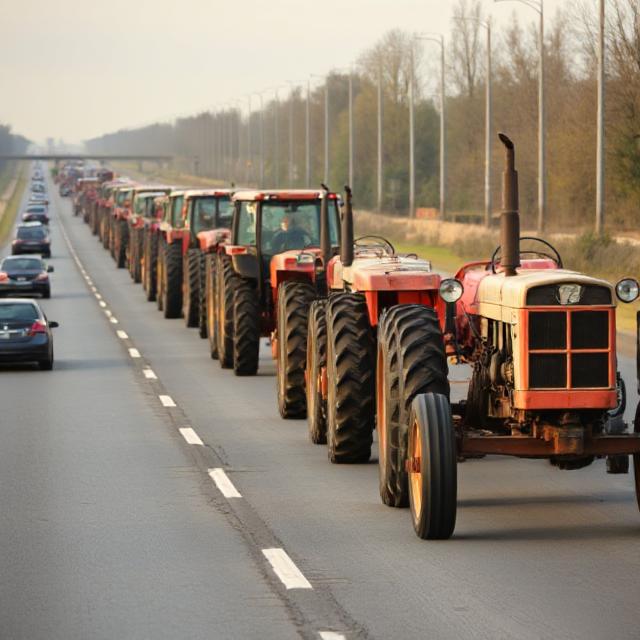For decades, Greek farmers have been portrayed as the backbone of the nation’s economy, the guardians of tradition, and the heart of rural life. But behind this romanticized image lies a harsh reality: a sector plagued by inefficiency, resistance to modernization, and an unhealthy dependence on government handouts.
Addicted to Subsidies, Resistant to Reform
Greek farmers have grown accustomed to living off EU and state subsidies, treating them as an entitlement rather than a temporary support mechanism. Whenever the government attempts to implement necessary reforms—such as reducing wasteful spending or modernizing agricultural practices—farmers respond with roadblocks, protests, and demands for even more money.
In 2024, when the government proposed slight adjustments to fuel subsidies to promote sustainable energy, farmers across Greece blocked highways, dumped produce in the streets, and held cities hostage until their demands were met. Instead of adapting, they chose disruption.
Inefficient and Outdated Practices
While other European farmers invest in technology, automation, and sustainable methods, many Greek farmers cling to outdated techniques, refusing to innovate. Small, fragmented land plots and a lack of cooperation between producers keep productivity low. Rather than consolidating resources or embracing new farming technologies, they prefer to blame the government, the EU, or “unfair competition” for their struggles.
Environmental Negligence
Greek agriculture is also a major contributor to environmental degradation. Overuse of water resources—especially in water-scarce regions like Achaia—has led to depleted aquifers and ecological damage. Illegal water drilling is rampant, yet enforcement is weak because politicians fear backlash from the farming lobby. Additionally, excessive use of pesticides and fertilizers has polluted soil and waterways, yet meaningful regulation is often blocked by agricultural unions.
Political Manipulation
Farmers in Greece have long been used as a political tool. Parties of all stripes pander to them before elections, promising more subsidies and protectionist policies, only to face the same cycle of protests later. Instead of pushing for long-term solutions, farmers prefer short-term handouts, perpetuating a broken system.
Conclusion
While farming is undoubtedly a tough profession, Greek farmers have become their own worst enemies. Their refusal to modernize, their overreliance on subsidies, and their willingness to hold the economy hostage whenever reforms are proposed make them more of a burden than a benefit to Greece’s future. Until they embrace change, the sector will remain stagnant, taxpayers will keep footing the bill, and Greece will fall further behind more competitive EU agricultural markets.
It’s time for Greek farmers to stop playing the victim and start taking responsibility for their own future.
